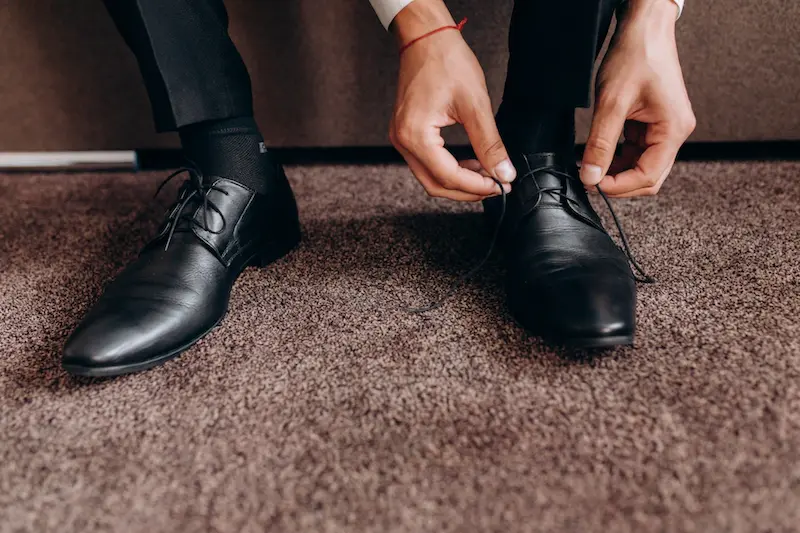What Makes your personality: The moment we meet someone or even catch a glimpse of them, our brains automatically start making judgments. While we may believe that these assessments are based solely on conversations and evident behaviors, research indicates otherwise. In fact, the majority of our personality judgments are drawn from subtle cues and non-verbal communication. In this blog post, we’ll delve into the fascinating world of human behavior and explore the small things that people use to judge your personality.
How do people judge your personality?
The process of judging someone’s personality begins the moment you come into contact with them. Our brains are hardwired to assess others, a survival mechanism that helped our ancestors distinguish between friends and foes. While we can’t prevent these automatic judgments, we can become more aware of the cues we give off and the perceptions we create.
Which actions make your personality?
1. Handshake: The simple act of shaking hands may seem like a formality, but it carries significant weight in personality assessment. A firm and confident handshake can make you appear welcoming and respectful, while a weak or painful handshake can signal indifference or a lack of care.


2. Handwriting: Believe it or not, your handwriting can reveal aspects of your personality. Neat and organized handwriting reflects a detail-oriented individual, while messy script may lead to judgments of disorganization and lack of care.


3. Shoes: Your choice of footwear speaks volumes about your personality. People can gauge your age, income, and even attachment anxiety based on your shoes. Clean, comfortable shoes may portray you as agreeable, while aggressive personalities tend to opt for ankle boots.


4. Nail Biting: Habits like nail biting or excessive skin picking can suggest nervousness, impatience, or boredom. These small behaviors can lead to perceptions of an unpolished personality.


5. Eating Manners: The way you eat, especially in public, can influence how people judge your personality. Eating with an open mouth or burping is generally considered disrespectful, while refined table manners can make you appear more sophisticated.


6. Punctuality: Being on time is a reflection of your character. Chronic lateness may lead others to believe that you lack respect, procrastinate, or are disinterested.


7. Eye Contact: Maintaining the right balance of eye contact is crucial. While avoiding eye contact can make you appear disinterested or shy, excessive staring may come across as aggressive. Striking the right balance shows that you are friendly and approachable.


8. Asking Questions: Engaging in a conversation by asking questions demonstrates empathy and compassion. However, it’s essential to strike a balance, as too many questions can be perceived as intrusive or interview-like.
9. Selfie Styles: Even the way you pose in selfies can provide insights into your personality. Your selfie behavior, such as smiling or using the infamous “duck face,” can reflect openness or neuroticism.
10. Phone Use: Constantly checking your phone during a conversation signals a lack of respect and attention. It can suggest that you prioritize your device over face-to-face interaction.
What things show your personality?
Now that we’ve explored some of the small things people judge your personality on, it’s essential to remember that first impressions matter. These non-verbal cues, such as handshakes, handwriting, and punctuality, contribute to the initial perceptions others form about you. While we can’t control every judgment, becoming aware of these cues can help us make a more positive impact when meeting new people.
What do people judge others on?
Just as you may be judged based on these small cues, it’s crucial to recognize that you, too, form impressions of others. Understanding the factors that contribute to personality judgments can enhance your social interactions and relationships. Remember that these judgments are natural, but by being mindful of them, we can strive to create a more empathetic and compassionate society.
In conclusion, human behavior is a complex interplay of subtle cues and perceptions. While we can’t entirely control how others judge our personality, we can be mindful of the signals we send through our actions and behaviors. These small things, from handshakes to punctuality, collectively shape the impressions we make on others. By understanding the psychology behind these judgments, we can strive to create more positive and authentic connections with those we meet.
Next time you extend your hand for a handshake or choose your shoes for the day, remember that these small choices may influence the perceptions others have of your personality. Embrace the opportunity to make a lasting, positive impression and foster meaningful connections based on genuine understanding.
ALSOP READ:
| 10 ways How to Balance Your Life as a Working Mom
| 5 Zaroori Social Skills Jinhen Har Bacche Ko Kaamyabi Ke Liye Sikhna Chahiye
| 8 Ways to Boost Your Confidence and Embrace Your Dark Skin
What Makes your personality
FAQ
Q1: How do people judge your personality?
A1: People judge your personality through various cues, including your behavior, body language, and even small actions like handshakes.
Q2: What is the significance of a handshake in personality assessment?
A2: A handshake can convey confidence, respect, or indifference, making it a critical factor in how others judge your personality.
Q3: Can handwriting reveal aspects of one’s personality?
A3: Yes, neat and organized handwriting may indicate a detail-oriented personality, while messy writing can suggest disorganization.
Q4: What role do shoes play in personality judgments?
A4: Choice of footwear can reveal age, income, and even attachment anxiety, providing insights into someone’s personality.
Q5: How can nail-biting and skin-picking habits influence perceptions of personality?
A5: These habits may suggest nervousness, impatience, or boredom, leading to judgments of an unpolished personality.
Q6: Are eating manners important in personality assessment?
A6: Yes, eating manners matter. Polite table etiquette can make you appear sophisticated, while rudeness may reflect negatively on your personality.
Q7: Why is punctuality considered an indicator of character?
A7: Being punctual demonstrates respect, responsibility, and reliability, traits associated with positive character.
Q8: What’s the significance of eye contact in personality judgments?
A8: Maintaining the right balance of eye contact indicates interest and friendliness, while excessive staring can be perceived as aggressive.
Q9: Why is asking questions seen as a positive personality trait?
A9: Asking questions shows empathy and curiosity, but it’s essential to strike a balance to avoid appearing intrusive.
Q10: How can understanding personality judgments improve social interactions?
A10: Understanding these judgments can help us create more positive and authentic connections with others, enhancing our social interactions and relationships.

